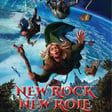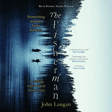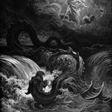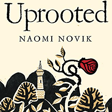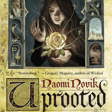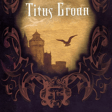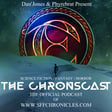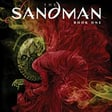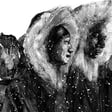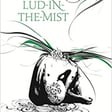
John Carpenter's The Thing with Chad Fifer and Chris Lackey
We see in 2023 with Chad Fifer and Chris Lackey, the hosts of the Strange Studies of Strange Stories podcast covering genre fiction. As well podcasting, they are quite the polymath duo; Chad is a filmmaker, screenwriter, and musician, and Chris is a writer of books for tabletop RPGs and co-host of other podcasts such as Rachel Watches Star Trek.
Chad and Chris's bread and butter is H.P Lovecraft - they cut their teeth on HP Podcraft, a podcast dedicated to the master of cosmic horror - and they join us today to talk about a movie that has Lovecraftian DNA running through it - John Carpenter's The Thing, the 1982 science-fiction horror masterpiece. We'll talk about the evolution of the film, from At the Mountains Of Madness to Who Goes There?; we'll cover fears of the unknown, a post-Covid reading of the film, and ponder upon alternative versions of the film starring Ernie Hudson and Christopher Walken (which almost happened!).
We also chat about the various projects Chad and Chris have on the go, including Chad's 2022 movie The Time Capsule, his music with Pitch Black Manor, and Chris's unexpected podcasting adventures with his wife Rachel.
Elsewhere The Judge concludes her series of talks on plagiarism, we hear Mosaix's winning entry from December's 75-word writing challenge, and Elon Musk tells Mars Radio FM how his acquisition of Twitter is paving the way for his journey to the Red Planet.
Links
The Strange Studies Of Strange Stories Podcast
Chad's band Pitch Black Manor
Chad's movie The Colossus, adapted from Clark Ashton Smith's short story, can be viewed for free (!!) on Youtube.
For more info on Chad's 2022 sci-fi romance movie The Time Capsule visit https://thetimecapsulemovie.com/
Chris's other podcast, Rachel Watches Star Trek, is available on all good podcast platforms, and there are more details here.
Index
[0:00:00 - 0:41:07] - Interview Part 1
[0:41:08 - 0:43:26] - Skit 1
[0:43:27 - 0:59:25] - The Judge's Corner
[0:59:26 - 1:00:41] - 75-word challenge
[1:00:42 - 1:03:37] - Skit 2
[1:03:38 - 1:31:24] - Interview Part 2
[1:32:25 - Close] - Credits



